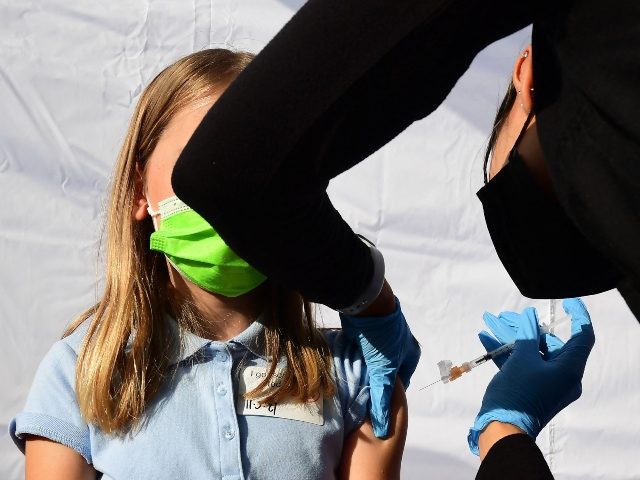The Centers for Disease Control and Prevention (CDC) on Thursday approved coronavirus booster shots for 16-17-year-olds — a move made in the wake of the Omicron variant of the Chinese coronavirus.
“Today, CDC is strengthening its booster recommendations and encouraging everyone 16 and older to receive a booster shot,” CDC director Rochelle Walensky announced on Thursday.
“Although we don’t have all the answers on the Omicron variant, initial data suggests that COVID-19 boosters help broaden and strengthen the protection against Omicron and other variants,” she continued, calling coronavirus vaccines “safe and effective.”
“I strongly encourage adolescents ages 16 and 17 to get their booster if they are at least six months post their initial Pfizer vaccination series,” she added.
The news comes as the Biden White House promotes vaccines and booster shots in the face of the Omicron variant. What is more, Pfizer CEO Albert Bourla is now saying that a fourth coronavirus jab could be necessary sooner rather than later.
“When we see real-world data, will determine if the Omicron is well covered by the third dose and for how long,” he said during an appearance on CNBC’s Squawk Box. “And the second point, I think we will need a fourth dose.”
While he initially said a fourth shot would be needed one year after the first booster shot, he added that “we need to wait and see because we have very little information” in terms of the Omicron variant.
“We may need it faster,” he warned. However, he expressed belief that the third dose will “give very good protection” for now.
Bourla has long signaled that coronavirus shots could become a part of everyday life. In September, he predicted that “normal life” could return within a year, but he couched that assertion, warning that life will not return to normal without vaccinations.
“I don’t think that this means that variants will not be continued coming, and I don’t think that this means that we should be able to live our lives without having immune — without having vaccinations basically,” he told George Stephanopoulos at the time.
That same month, Bourla confessed that annual coronavirus vaccinations would be “likely.”
“I think the most likely scenario is annual revaccinations, but we need to wait and see the data,” he said.

COMMENTS
Please let us know if you're having issues with commenting.